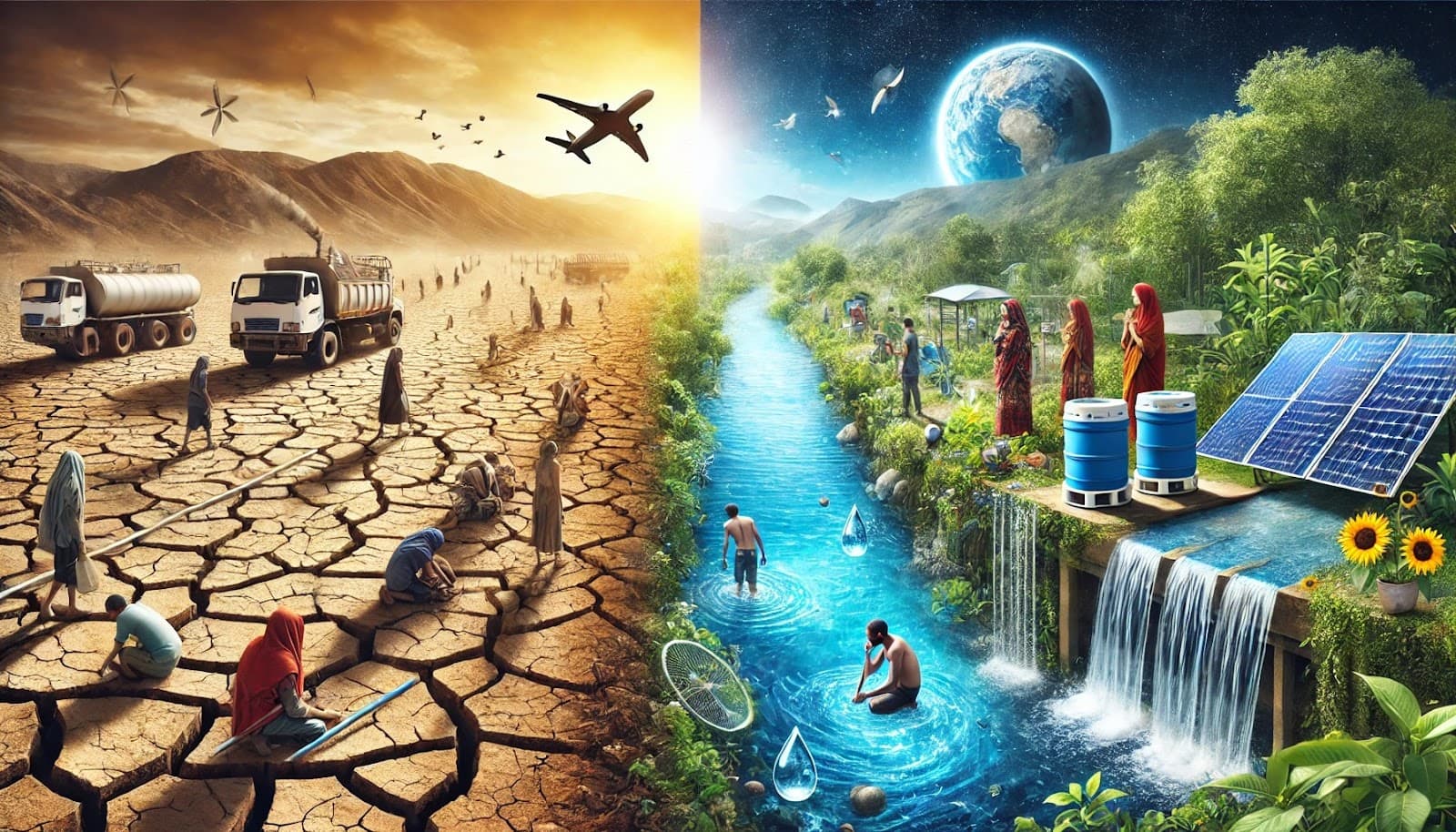The Global Water Crisis and How We Can Help

The global water crisis is one of the most pressing issues facing humanity today. With nearly 2 billion people living in countries experiencing high water stress, the problem of water scarcity is becoming increasingly urgent. Clean, accessible water is essential for life, yet millions lack reliable access to it, leading to widespread health, economic, and social challenges. Water is not only necessary for drinking but also for sanitation, agriculture, and industry. The scarcity of this vital resource poses significant threats to global development, public health, and environmental sustainability.
Despite the scale of the problem, there are ways we can make a difference. Addressing the global water crisis requires collective action on multiple levels, from individual conservation efforts to large-scale infrastructure improvements and technological innovations. Governments, organizations, and communities must work together to implement policies that improve water management, increase access to clean water, and reduce wastage. In this article, we will explore the causes and consequences of the water crisis, as well as the steps we can take—both globally and individually—to help solve this urgent challenge.
Understanding the Global Water Crisis
The global water crisis is a severe and growing challenge, affecting billions of people worldwide. Around 2 billion individuals live in countries facing high water stress, lacking access to clean and safe water. This issue is most acute in regions like Sub-Saharan Africa, South Asia, and parts of the Middle East, where factors such as droughts, population growth, and poor water management systems exacerbate the situation. With approximately 785 million people lacking clean drinking water, the crisis contributes to health issues like waterborne diseases. The crisis is intensified by urbanization, climate change, and outdated infrastructure.
Key Factors Contributing to the Global Water Crisis:
- Over-extraction of Freshwater Resources: Agriculture consumes about 70% of global water use, often inefficiently depleting rivers, lakes, and aquifers.
- Climate Change: Changing weather patterns lead to more frequent droughts in some areas and flooding in others, impacting water availability.
- Water Pollution: Industrial runoff, sewage, and agricultural chemicals contaminate freshwater sources, further reducing access to clean water.
- Population Growth: Increasing populations put added pressure on existing water supplies, making efficient water management more crucial.
- Inefficient Water Management: Poor infrastructure and water management systems contribute to wastage and reduce access to clean water in many regions.
Consequences of the Water Crisis
The consequences of the global water crisis are far-reaching and affect nearly every aspect of life, from health to economic stability. One of the most immediate and devastating impacts is on public health. In areas without access to clean water, waterborne diseases such as cholera, dysentery, and typhoid fever are rampant, causing millions of deaths each year, especially among children. Poor sanitation and the lack of hygiene facilities further exacerbate the spread of these diseases, leading to higher mortality rates and a decrease in the overall quality of life. In addition to physical health, the water crisis also places a significant strain on mental well-being, as families and communities must often travel long distances to access water, which can be a daily struggle in many parts of the world.
The economic consequences of water scarcity are equally severe. Agriculture, which depends on a reliable and consistent water supply, is among the hardest-hit sectors. Crop production suffers during droughts, reducing food availability and driving up prices, while farmers face financial instability due to failed harvests. Water scarcity also hampers industrial processes, as many manufacturing industries require water for production, cooling, and other essential functions. When water becomes scarce, industries may be forced to cut production, leading to job losses and economic downturns. Additionally, countries and communities without adequate water infrastructure face increased costs for water treatment and distribution, further straining already limited financial resources. The combined effects of water scarcity on health, agriculture, and economies create a vicious cycle, worsening the global water crisis.
How We Can Help Address the Water Crisis
Addressing the global water crisis requires collaborative efforts across various sectors, from local communities to international organizations. Governments are crucial in implementing policies that promote water conservation, improve management, and ensure equitable distribution. International initiatives, like the United Nations’ Sustainable Development Goals (SDGs), aim to provide universal access to clean water and sanitation by 2030. Investments in water infrastructure and sustainable resource management are essential to long-term water security.
Solutions to Address the Water Crisis:
- Government Policies: Promoting water conservation, improving management, and ensuring equitable resource distribution.
- International Agreements: The UN’s SDGs to ensure access to clean water and sanitation for all by 2030.
- Investments in Infrastructure: Building reliable water supply systems and sanitation facilities in urban and rural areas.
- Sustainable Water Management: Protecting watersheds and preventing over-extraction of freshwater sources.
- Desalination Technology: Converting seawater into drinkable water to address freshwater shortages.
- Water Recycling: Implementing water reuse systems in residential and industrial settings.
- Efficient Irrigation Systems: Using technologies like drip irrigation to conserve water while boosting agricultural productivity.
- Affordable Purification Technologies: Solar-powered filters and compact devices to provide clean drinking water in remote communities.
Conclusion
The global water crisis is a pressing challenge that affects billions of people worldwide, with far-reaching consequences for health, economies, and the environment. Access to clean water is a fundamental human right, yet millions still lack this basic necessity, leading to dire consequences. However, there is hope. By taking concerted action on multiple fronts—through government policies, technological innovations, and community-based solutions—we can make significant strides in addressing the water crisis. Individuals can also play a role by adopting water-saving practices and supporting organizations dedicated to providing clean water access. The fight against the global water crisis is a shared responsibility, and every effort counts in ensuring a sustainable, water-secure future for all. It is time for collective action to safeguard this precious resource for future generations.